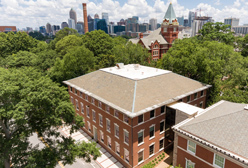Sponsored Research
“Auburn Sights and Stories: An Augmented Reality Application Project,” a project by Professor Jay D. Bolter and Assistant Professor Nassim JafariNaimi, both in the School of Literature, Media, and Communication has received $30,000 from the Atlanta Downtown Improvement District.
“Southface Advocacy Capacity Program Concept,” a project by Marilyn A. Brown, professor in the School of Public Policy, has received supplemental funding for $25,000 from the Southface Energy Institute, bringing the total funding for this project to $57,000.
Christine Ries, professor in the School of Economics, has received a grant from the Friedman Foundation for Educational Choice to describe the “flipped classroom” model as it is developing in her classroom and several others at Georgia Tech. The study will identify the new educational technologies and support applications that are emerging from a range of small, innovative, start-up ventures.
“Call My Name: The Aids Quilt,”A Presentation of Africa Atlanta 2014 has been awarded $3,000 by the City of Atlanta Mayor's Office of Cultural Affairs. Jacqueline J. Royster, dean, Ivan Allen College of Liberal Arts is principal investigator.
Recent Books
“Peddling Paradise: The Politics of Tourism in Latin America” (Lynne Rienner Publishers, 2013) by Kirk S. Bowman, professor in The Sam Nunn School of International Affairs, offers comparative analysis and explanations for both failed policies and impressive successes in the use of tourism to foster development in Latin America.
Margaret E. Kosal, associate professor in The Sam Nunn School of International Affairs, has published the chapter “Anticipating the Biological Proliferation Threat of Nanotechnology: Challenges for International Arms Control Regime” in the new book New Technologies and the Law of Armed Conflict (Springer, 2014).
What Does Georgia Tech Think?
Selected Press for Ivan Allen College of Liberal Arts
|
Best on Blackberry's Foreign Prestige
“Across all economic levels, everyone in Nigeria perceives them as prestige items and not just instrumental appliances,” said Michael L. Best, professor in the School of International Affairs, on BlackBerry's dominant market position in Africa. “The mystique and prestige of the brand in Nigeria far outweigh any market realities.” Source: CNBC, February 27, 2014
Kashtan on Interracial Casting
“Fans often seem to believe that if a character is changed from white to black, they will no longer be able to identify with that superhero,” said Aaron Kashtan, a Brittain Postdoctoral Fellow in the School of Literature, Media, and Communication, on the casting of Michael B. Jordan for the new Fantastic Four movie. “Superhero comics were developed in the cultural context of '60s America where it was just normal for all the characters to be white. This default assumption of whiteness is no longer acceptable.” Source: The Atlantic, February 20, 2014
Bogost on Smartphone Writing
“Careful, long-form writing and editing on mobile is difficult at best, impossible at worst,” said Ian Bogost, professor in the School of Literature, Media, and Communication, on smartphones as inferior writing tools. “Think about Angry Birds: part of the reason it’s so popular is because it can be played by pulling a slingshot.” Source: The New York Times, February 9, 2014
Matisoff on Ecolabels
“Firms build greener buildings to take advantage of the marketing benefits conferred by the certification thresholds,” said Daniel Matisoff, assistant professor in the School of Public Policy, on the race to achieve green-building labels. Matisoff and his colleagues have developed an economic model to plot LEED scores. Source: Chemical and Engineering News, January 24, 2014
Krisinger on the Education System
“If our nation's leaders want to reverse the education system's downward spiral and retain talented teachers, we must first address the working conditions and expectations of those who lead the schools,” said Josh Krisinger, an alumnus of The Sam Nunn School of International Affairs, in a letter to the editor in response to USA Today's article "Respect at school in decline, survey shows." Source: USA Today, January 23, 2014
February 28, 2014
9:00 am
April 18, 2014 - April 19, 2014
4:00 pm
May 16, 2014 - May 17, 2014
4:00 pm
May 17, 2014 - September 21, 2014
9:00 am
|
IAC Founder's Day Celebrates 125 Years of Liberal Arts at Georgia Tech
Faculty, students, staff, and friends of the Ivan Allen College of Liberal Arts gathered together March 13 for our Founder's Day celebration. This year, we mounted a special program in celebration of the 125th anniversary of liberal arts at Georgia Tech—yes, we've been here since Georgia Tech first opened its doors in 1888!
Here are a few highlights from the program:
125th Anniversary Video
125 Years of Liberal Arts at Georgia Tech Timeline
Remarks by Georgia Tech President G. P. “Bud” Peterson: Dr. Peterson highlighted the college’s “far-reaching impact” citing examples of its global influence; its role as flag bearer for the Allen legacy of ethical, socially conscience, and socially responsible actions; and the college’s strategic role in the invitation to Georgia Tech to join the prestigious Association of American Universities (AAU) in 2010. “Congratulations on 125 years of liberal arts at Georgia Tech. Georgia Tech would not be where it is today without the legacy and ongoing pursuit of excellence of the Ivan Allen College of Liberal Arts.”
“One Georgia Tech: the Liberal Arts and 21st Century Innovation and Learning”
This panel brought together Georgia Tech and IAC faculty and alums whose education and careers are intriguing models for transboundary learning, leadership, and innovation and represented the public and private sector, social sciences, humanities, engineering, architecture, and computing.
Comment by Douglas R. Hooker, executive director of Atlanta Regional Commission: “I wish that every Georgia Tech student could study the intersection of technology and policy because, eventually, they will require that knowledge in everything they do.”
Comment by Nancy J. Nersessian Regents’ Professor and professor of cognitive sciences: “We need to teach this at the beginning with integrative freshman seminars. Whether science or art, the creative process is similar … innovation requires the ability to formulate a problem from different perspectives.”
“Innovation at the Crossroads” Faculty Research Panel
Organized by Associate Dean for Research Janet Murray, this panel presented defining scholarship transversing technology and ethics, history, security, culture, and economics.
In opening remarks, Dean Jacqueline J. Royster said, “Considering [IAC's] strengths, I must wonder whether one day the world might look back on this age of ubiquitous technologies and marvel at the notion that there was ever a time when any innovation was attempted without bringing to bear what we know and can do in the humanities and social sciences. What we can be proud of right now is that Georgia Tech is an international leader in research and education, and, ever-increasingly, so is the Ivan Allen College of Liberal Arts with our quite interesting innovations at the crossroads.”
A preview of the new television documentary about Mayor Ivan Allen Jr. received a standing ovation. Introduced by producer David Duke, the film will air on Georgia Public Television later this year (date and time TBA).
Presentation of the Allen Legacy Awards which recognize outstanding scholarship and civic involvement.
- Caroline Gwynn, science, technology, and society major. President of both Mobilizing Opportunities for Volunteer Experiences and Rethink (student-run disabilities advocacy), IAC Student Advisory Board.
- Johann Weber, doctoral candidate in Public Policy. Founder and chair of Georgia Tech's Bicycle Infrastructure Improvement Committee (BIIC), Vice President of Campus Organizations, Graduate Student Senate.
- Douglas E. Flamming, professor, School of History, Technology, and Society. An outstanding teacher, scholar, and campus citizen who has devoted his professional life to helping people comprehend the world in which Ivan Allen created his legacy, the twentieth-century South.
- Judge Michelle Homier, alumna in history, technology, and society, 1999.
View Video of the Morning Research Panel: "Innovation at the Crossroads"
View Video of Celebratory Program including the panel "One Georgia Tech: The Liberal Arts and 21st Century Innovation and Learning"
View Founder's Day Web Exhibit of research by IAC graduate students at
Request a copy of the special commemorative program for the 2014 Ivan Allen College Founder’s Day celebrating the 125th anniversary of liberal arts at Georgia Tech, by emailing rebecca.keane@iac.gatech.edu
The 2014 Founder’s Day program was recorded by the Georgia Tech library. A link to the recording will be announced when it becomes available.
|
Founder's Day Photos
|
The program highlighted liberal arts at Georgia Tech from 1888 to 2014
Faculty presentations showcased IAC research at the intersection of technology and ethics, history, security, culture, and economics.
Georgia Tech President G. P. "Bud" Peterson was among the speakers.
Provost Rafael L. Bras moderated a compelling dialogue, "One Georgia Tech: The Liberal Arts and 21st Century Innovation and Learning."
(L to R) Associate Deans John Tone and Janet Murray, Col. Stephen C. Hall, Legacy Award Recipients Douglas Flamming, Johann Weber, Michelle Homier, Caroline Gwynn, and Dean Jacqueline Royster.
|
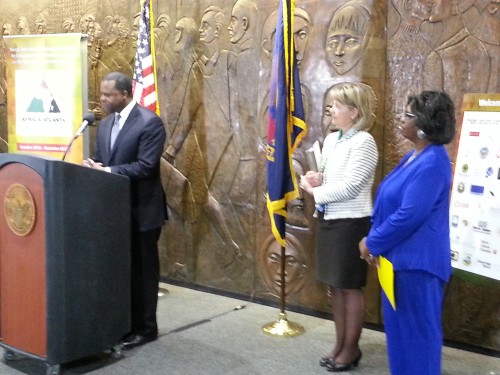
|
Africa Atlanta 2014 is formally introduced at City Hall
At Atlanta City Hall February 24, Mayor Kasim Reed joined Dean Jacqueline J. Royster, Geneviève Verbeek, consul general of Belgium in Atlanta, and representatives of the initiative's local, national, and international partner organizations to officially introduce Africa Atlanta 2014, encouraging city residents and visitors to “Feel the Soul of Africa in the Heart of Atlanta.”
The press conference highlighted the initiative as a catalyst for developing the cross-cultural ties that open the city as a gateway to Africa.
"I am convinced that Atlanta is well-positioned to become a significant partner,” said Atlanta Mayor Kasim Reed in his remarks. He noted that six of the fastest-growing economies in the next 15 years will be in Africa, and that Atlanta would like to be a friendly partner in that growth.
“With its connections across the Atlanta region and an impressive network of national and international partners, Africa Atlanta 2014 is bringing a new dimension to the city’s profile and engagement as an international city,” said Reed, who is honorary chair of the Africa Atlanta 2014 International Advisory Board. “Africa Atlanta 2014 is expanding our cultural and artistic offering for thousands of residents and visitors.”
In her remarks to press and partners, Ivan Allen College Dean Jacqueline J. Royster, who created and organized the initiative, said, "With a goal of collaboration and cooperation, instead of isolation and competition, Africa Atlanta 2014 seeks to generate a new model. Quite deliberately, this initiative draws connections across the arts, humanities, sciences, and technology; across education, business, and innovation; across local and global concerns—past, present, future. In just under 18 months, we have organized an array of spectacular events under a thematic umbrella, with arts and culture as a springboard by which to engage untapped potential."
Also speaking at the press conference was Geneviève Verbeek, consul general of Belgium in Atlanta and co-organizer of the initiative. “Africa has been and continues to be an incontrovertible influence in daily life, in the Americas, Europe, and around the globe. Africa Atlanta 2014 is an opportunity to enhance our understanding of the past and shape a vibrant future together.”
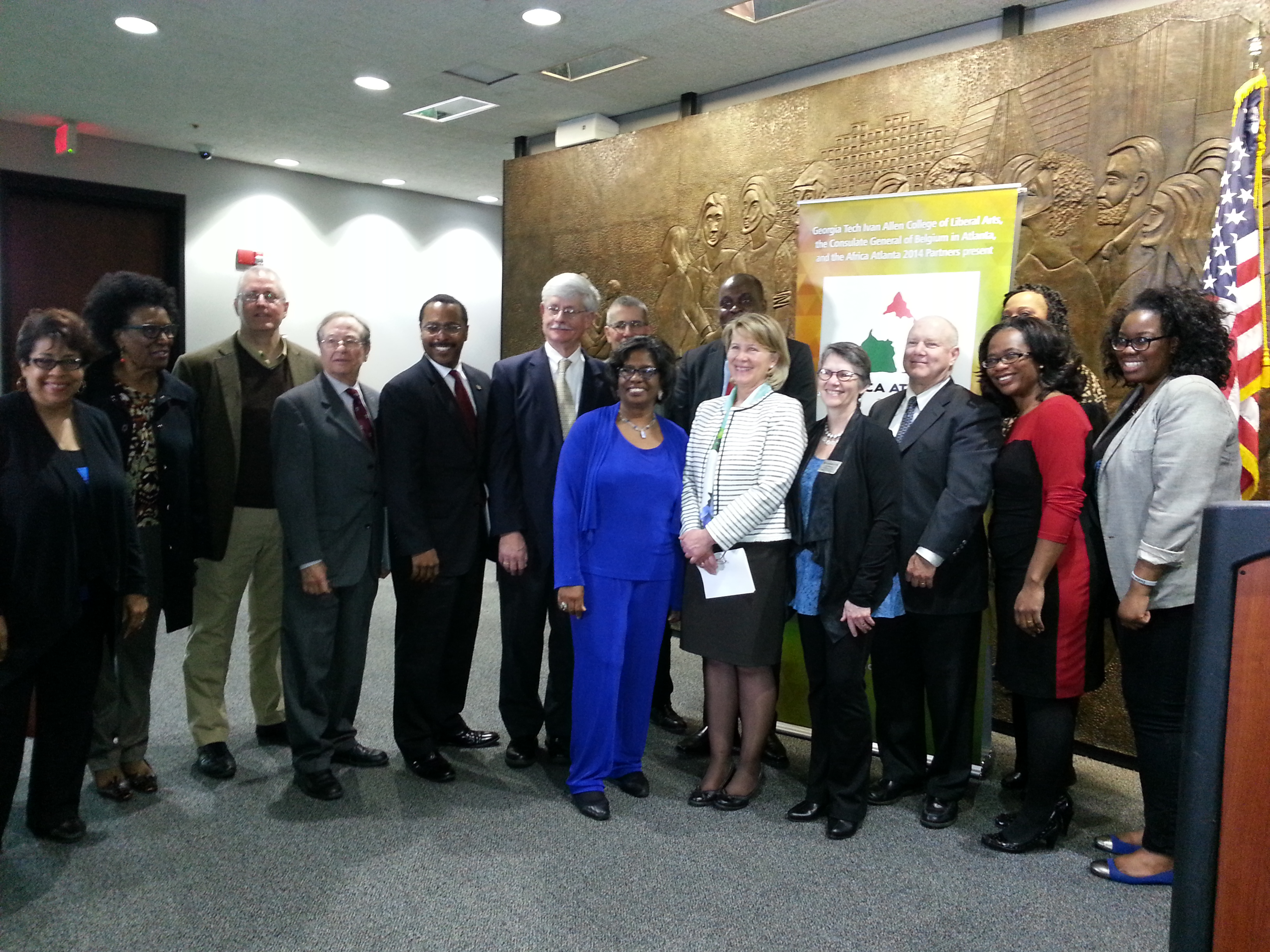 Following on the heels of the press conference came the formal opening event for Africa Atlanta 2014, a special reception for the exhibition "Mapping Place: Africa Beyond Paper" at the Robert C. Williams Paper Museum on campus. Photos from the opening are in the slideshow below. Following on the heels of the press conference came the formal opening event for Africa Atlanta 2014, a special reception for the exhibition "Mapping Place: Africa Beyond Paper" at the Robert C. Williams Paper Museum on campus. Photos from the opening are in the slideshow below.
Check out ongoing and upcoming Africa Atlanta 2014 events at www.africaatlanta.org.
|
Africa Atlanta 2014 Opens with "Mapping Place: Africa Beyond Paper" at the Robert C. Williams Paper Museum
|
|
|
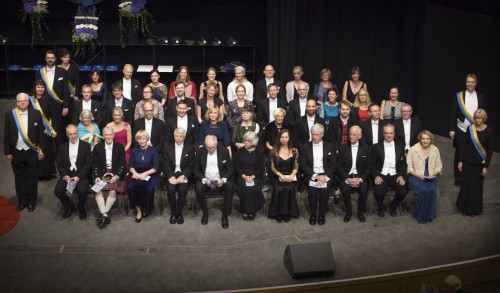
|
Knoespel Receives Honorary Doctorate from Swedish University
As Georgia Tech expands its footprint around the world, long-term international relations and collegial exchange impact the way in which our research and scholarship are received. Kenneth J. Knoespel, McEver Professor of Engineering and the Liberal Arts at Georgia Tech, has a long and deep personal and scholarly commitment to several international partner institutions.
Recently, the University of Umeå, Sweden, conferred upon Knoespel a prestigious honorary doctorate recognizing his ongoing productive engagement with Swedish institutions of higher learning. Umeå officials praised him for developing “a deeper dimension for work in the digital humanities,” for integrating “work in the humanities and digital media through his scholarly and administrative work,” and for providing “a strategic resource for the ongoing development of HUM-Lab,” the university’s center for the interdisciplinary encounter of the humanities, culture, and information technology.
Knoespel’s connection with Sweden and Northern Europe in general was initiated when he was an undergraduate at the University of Wisconsin-Madison. Later, he taught for three years as a lecturer in the English Department at the University of Uppsala, offering courses on Shakespeare and English poetry. During his stay, he also began to translate Swedish poetry into English and, together with Amy Arnett Knoespel, translated the first wave of sociologically important detective fiction (Mai Sjövall and Per Wahlöö’s Murder at the Savoy) and was able to mingle with many Swedish authors.
His Swedish sojourn also introduced him to the field of intellectual history, which would become one of his areas of specialization. It also inspired him to work on a range of European languages before moving to the University of Chicago, where he completed his M.S. and Ph.D. in Comparative Literature. While at Chicago, he taught Swedish in the Department of German and Germanic Languages and worked as a dramaturg in Chicago, co-writing and co-producing (with Robert Wolff) "A Hail of Bullets," a play based on Bertolt Brecht’s one-act play secretly produced in Stockholm when he was there in exile.
His connections with Sweden have involved work with the University of Uppsala, University of Gothenburg, The Royal Institute of Technology, Blekinge Tekniska Högskola, Södertörns Högskola, and the University of Umeå. Together with School of Literature, Media and Communication (LMC) professor Jay Bolter, he established Georgia Tech’s exchange program with Blekinge Tekniska Högskola.
Knoespel’s work in Sweden has led in the past 15 years to extensive work with Russian colleagues. He taught at the Russian Academy of Sciences in St. Petersburg and worked closely with the European University in St. Petersburg. This ongoing work contributed to the visit several weeks ago from colleagues from the Higher School for Economics, St. Petersburg.
 Knoespel (pictured right with wife, Amy) was awarded the honorary doctorate during a public ceremony, followed by a banquet with the President of Umeå University and the Chancellor of the University System of Sweden in October 2013. During the banquet, Knoespel was invited to address the audience of 450 guests, and did so in Swedish. Knoespel (pictured right with wife, Amy) was awarded the honorary doctorate during a public ceremony, followed by a banquet with the President of Umeå University and the Chancellor of the University System of Sweden in October 2013. During the banquet, Knoespel was invited to address the audience of 450 guests, and did so in Swedish.
Richard Utz, LMC chair and a product of the European university system, views the great honor awarded by Umeå University “a testimony to Ken Knoespel’s impressive record of excellence and sincere interest in international and collaborative scholarship.”
Kenneth J. Knoespel is McEver Professor of Engineering and the Liberal Arts and Director of the Allen Institute for Advanced Studies in the Ivan Allen College of Liberal Arts and the IAC School of History, Technology, and Society, and an adjunct appointment in the College of Architecture. He is a former chair of the IAC School of Literature, Media, and Communication chair and has served as interim dean of the Ivan Allen College.
Read more about Ken Knoespel
Recent article by Dr. Knoespel in Baltic Worlds: "The Stuff of Myths and the Baltic Sea"
|
Energy Secretary Moniz to Keynote Nunn Forum on Natural Gas Networks

The biennial Sam Nunn Bank of America Policy Forum, to be held this year on April 16, brings together noted academic, government, and private-sector experts on technology, public policy, and international affairs to address issues of global importance. The 2014 topic is: “U.S. Competitiveness Amid a Changing Natural Gas Landscape: A View from the Southeast.” U.S. Secretary of Energy, Dr. Ernest Moniz, will be the keynote speaker.
This forum will explore the implications of an emerging “golden era of gas.” It will address the impact of shifting global supply and demand, and related transformation of gas networks. Particular attention will be devoted to exploring the intersection of the digital and energy revolutions, and implications for U.S. leadership in promoting energy security and spurring economic competitiveness at the global, national, and state levels. Drawing on the insight of outstanding panelists, the forum program will highlight technological innovations and novel public-private-academic partnerships underway in Georgia and across the Southeast region aimed at redressing critical infrastructure, policy, and consumer challenges.
|
NAS Study Assesses Two Decades of Effort to Strengthen American Manufacturing
A new study by the National Academies (NAS), 21st Century Manufacturing: The Role of the Manufacturing Extension Partnership Program, has been published by a committee of business executives and academic experts, chaired by School of Public Policy Professor Philip Shapira.
The study seeks to generate a better understanding of the operation, achievements, and challenges of the Manufacturing Extension Partnership (MEP). A program of the U.S. Department of Commerce's National Institute of Standards and Technology, the MEP has sought for more than two decades to strengthen American manufacturing—and the resultant jobs—in a rapidly changing competitive environment.
The national network of affiliated manufacturing extension centers works directly with manufacturing firms to provide expertise, services, and assistance toward improving growth, supply chain positioning, leveraging emerging technologies, improving manufacturing process, work force training, and the application and implementation of information in client companies.
The study concluded with key findings that addressed the need for a strong domestic manufacturing base in maintaining global competitiveness in advanced technologies and assessed the efficacy of the MEP, the leading U.S. government program designed to provide support services to manufacturers.
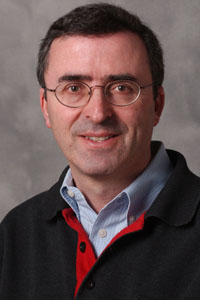 The committee also authored recommendations aimed to improve the structure of and methods utilized by the MEP, including a stronger focus on the overall improvement of MEP centers, improved collection and analysis of performance data, and using resources to leverage maximum beneficial outcomes for the manufacturing sector rather than reaching the maximum number of manufacturers. The committee also authored recommendations aimed to improve the structure of and methods utilized by the MEP, including a stronger focus on the overall improvement of MEP centers, improved collection and analysis of performance data, and using resources to leverage maximum beneficial outcomes for the manufacturing sector rather than reaching the maximum number of manufacturers.
Philip Shapira is a professor in the School of Public Policy at Georgia Tech and a professor of management, innovation, and policy with the Manchester Institute of Innovation Research. His interests encompass science and technology policy, economic and regional development, innovation management and policy, industrial competitiveness, technology trajectories and assessment, innovation measurement, and policy evaluation.
View or download the full report. The committee also produced a symposium report.
|
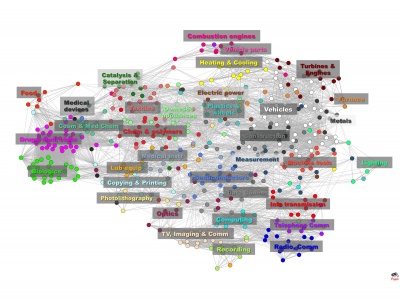
|
New Patent Mapping System Helps Find Innovation Pathways
What’s likely to be the “next big thing?" What might be the most fertile areas for innovation? Where should countries and companies invest their limited research funds? What technology areas are a company’s competitors pursuing?
To help answer those questions, researchers, policy-makers and R&D directors study patent maps, which provide a visual representation of where universities, companies and other organizations are protecting intellectual property produced by their research. But finding real trends in these maps can be difficult because categories with large numbers of patents—pharmaceuticals, for instance—are usually treated the same as areas with few patents.
Now, a new patent mapping system that considers how patents cite one another may help researchers better understand the relationships between technologies and how they may come together to spur disruptive new areas of innovation. The system, which also categorizes patents in a new way, was produced by a team of researchers from three universities and an Atlanta-based producer of data-mining software.
“ What we are trying to do is forecast innovation pathways,” said Alan Porter, professor emeritus in the School of Public Policy and the School of Industrial and Systems Engineering and the project’s principal investigator. “We take data on research and development, such as publications and patents, and we try to elicit some intelligence to help us gain a sense for where things are headed.” What we are trying to do is forecast innovation pathways,” said Alan Porter, professor emeritus in the School of Public Policy and the School of Industrial and Systems Engineering and the project’s principal investigator. “We take data on research and development, such as publications and patents, and we try to elicit some intelligence to help us gain a sense for where things are headed.”
Patent maps for major corporations can show where those firms plan to diversify, or conversely, where their technological weaknesses are. Looking at a nation’s patent map might also suggest areas where R&D should be expanded to support new areas of innovation, or to fill gaps that may hinder economic growth, he said.
Innovation often occurs at the intersection of major technology sectors, noted Jan Youtie, director of policy research services in Georgia Tech’s Enterprise Innovation Institute. Studying the relationships between different areas can help suggest where the innovation is occurring and what technologies are fueling it. Patent maps can also show how certain disciplines evolve.
.jpg) “You can see where the portfolio is, and how it is changing,” explained Youtie, who is also an adjunct associate professor in the Georgia Tech School of Public Policy. “In the case of nanotechnology, for example, you can see that most of the patents are in materials and physics, though over time the number of patents in the bio-nano area is growing.” “You can see where the portfolio is, and how it is changing,” explained Youtie, who is also an adjunct associate professor in the Georgia Tech School of Public Policy. “In the case of nanotechnology, for example, you can see that most of the patents are in materials and physics, though over time the number of patents in the bio-nano area is growing.”
The patent mapping research, which was supported by the National Science Foundation, will be described in a paper to be published in an upcoming issue of the Journal of the American Society for Information Science and Technology (JASIST). In addition to Youtie and Porter, the research was conducted by former Georgia Tech graduate student Luciano Kay, now a postdoctoral scholar at the Center for Nanotechnology in Society at the University of California Santa Barbara.
“The goal for this research was to create a new type of global patent map that was not tied into existing patent classification systems,” Kay said. “We also wanted an approach that would classify patents into categories or clusters in a graphical representation of interrelated technologies even though they may be located in different sections and levels of the standard patent classification.”
The International Patent Classification (IPC) system is based on a hierarchy of eight top-level classes such as “human necessity” and “electricity.” Patent applications are further classified into 600 or so sub-classes beneath the top-level classes.
Critics note that the IPC brings together technologies such as drugs and hats under the “human necessity” class—technologies that are not really closely related. The system also puts technologies that are closely related—pharmaceuticals and organic chemistry, for instance—into different classes.
The new Patent Overlay Mapping system does away with this hierarchy, and instead considers the similarity between technologies by noting connections between patents—which ones are cited by other patents.
“We completely disaggregated the patent classification system and looked at all the categories with at least a thousand patents,” Youtie explained. “We think our map gets closer to measuring the ideas of technological similarity and distance.”
Maps produced by the system provide visual information relating the distances between technologies. The maps can also highlight the density of patenting activity, showing where investments are being made. And they can show gaps where future R&D investments may be needed to provide connections between related technologies.
The researchers produced a series of patent maps by applying their new system to 760,000 patent records filed in the European Patent Office between 2000 and 2006. The data came from the PatSat database, and was analyzed using a variety of tools, including the VantagePoint software developed by Intelligent Information Services Corp. of Norcross, along with Georgia Tech.
One surprise in the work was the interdisciplinary nature of many of the 35 patent factors the researchers identified. For instance, the classification “vehicles” included six of the eight sections defined by the IPC system. Only five of the 35 factors were confined to a single section, Youtie said.
Because the researchers adopted a new classification system, other researchers wanting to follow their approach will hate to use a thesaurus that translates existing IPC classes to the new system. That conversion system is available online.
In addition to those already mentioned, the research team also included Ismael Rafols of Universitat Politecnica de Valencia in Spain and Nils Newman of Intelligent Information Services Corp.
This research was supported by the National Science Foundation (NSF) through the Center for Nanotechnology in Society at Arizona State University (Award No. 0531194) and NSF Award No. 1064146. The research was also undertaken in collaboration with the Center for Nanotechnology in Society, University of California Santa Barbara (NSF Awards No. 0938099 and No. 0531184). The findings and observations contained in this paper are those of the authors and do not necessarily reflect the views of the NSF.
|
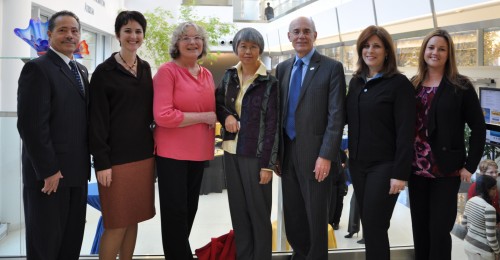
|
ADVANCE Equity, Diversity, Excellence, and Inclusion Initiative is Underway
The EDEI launch reception was held November 6 at the invitation of Archie Ervin, Vice President for Institute Diversity, and Provost Rafael Bras. Appearing in the photo (from left to right) are Archie Ervin, Vice President for Institute Diversity; Beril Toktay, ADVANCE Professor, Scheller College of Business; Mary Frank Fox, ADVANCE Professor, Ivan Allen College; Wing Suet Li, ADVANCE Professor, College of Sciences; Rafael Bras, Provost and Executive Vice President for Academic Affairs; Dana Randall, ADVANCE Professor, College of Computing; Kimberly Kurtis, ADVANCE Professor, College of Engineering
The ADVANCE Equity, Diversity, Excellence, and Inclusion (EDEI) initiative is underway at Georgia Tech bringing a focus on four key areas:
1. Mentoring to support junior faculty and promote senior faculty to positions of distinction.
2. Transparency in processes of reappointment, tenure, and promotion.
3. Bias Awareness and a climate of equity for al.
4. Accountability and data collection to track faculty retention, advancement, and satisfaction.
EDEI is spearheaded by the Georgia Tech ADVANCE professors and supported by the offices of the provost and institute diversity. The ADVANCE Team tracks data concerning hiring and advancement, particularly of female and underrepresented minority faculty; analyzes faculty work-life needs and initiatives; and sponsors faculty development programs such as career coaching and grants workshops to promote faculty research and advancement.
|
Groundbreaking Histories Reframe the “Space Race” and Unfold the Legacy of the Space Shuttle
Two new space history books by Kranzberg Professor John Krige, of the School of History, Technology, and Society, and collaborators at the National Aeronautics and Space Administration (NASA) and Georgia Tech present new and definitive dimensions of the scope and legacy of the program.
NASA in the World: Fifty Years of International Collaboration in Space (Palgrave Macmillan, 2013) moves beyond media-driven perceptions of an American initiative to compete with the Soviet Union to reveal complex mandates to both sustain U.S. leadership in space and to pursue international collaboration. This second aspect, which has been almost entirely overlooked by historians, is manifest in over 4,000 international projects since NASA’s inception in 1958.
Krige treats NASA as a vector of US foreign policy and describes the strategies it evolved to collaborate internationally, yet not violate goals to secure US global leadership in space science and technology. The extent of permissible technology transfer is one of the key determinants of the structure of NASA's international partnerships. The book situates the agency's efforts to regulate knowledge flows squarely within a foreign policy context, tracing changing relations with space programs in India and Japan, the USSR and Russia, and Western Europe.
The book itself is a collaborative project funded by NASA. Five chapters were authored by graduate students in the School of History, Technology, and Society, Angelina Long Callahan and Ashok Maharaj.
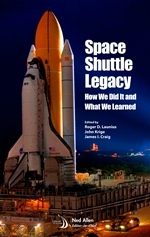 A second book, Space Shuttle Legacy: How We Did It and What We Learned is part of the American Institute of Aeronautics and Astronautics Library of Flight Series (AIAA Press, 2013). Krige edited the collection with Jim Craig, professor emeritus in Georgia Tech aerospace engineering, and Roger Launius, an associate director of the National Air and Space Museum in Washington, DC. A second book, Space Shuttle Legacy: How We Did It and What We Learned is part of the American Institute of Aeronautics and Astronautics Library of Flight Series (AIAA Press, 2013). Krige edited the collection with Jim Craig, professor emeritus in Georgia Tech aerospace engineering, and Roger Launius, an associate director of the National Air and Space Museum in Washington, DC.
Space Shuttle Legacy surveys 30 years of activity from both technological and social perspectives, aiming to draw the lessons of history. The book deals with critical components including the main engine, the thermal protection system, and the software. It embeds the shuttle design in the history of NASA and its predecessor, the National Advisory Committee for Aeronautics (NACA), illuminating a fascination with the space plane. It describes the evolution of management structures put in place to run the program, analyzes the Challenger and Columbia accidents, describes operations and life in orbit, explores the 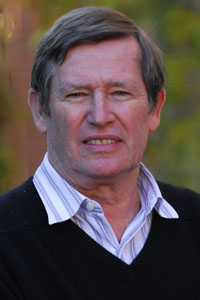 balance between science and space station missions, reflects on the meaning of the shuttle as a social icon, and asks, “What next?” balance between science and space station missions, reflects on the meaning of the shuttle as a social icon, and asks, “What next?”
Krige authored a chapter analyzing the failed attempt to include Western Europe as a major technological partner in the shuttle, which he attributes to White House fear that the U.S. would pass sensitive technology to its allies.
Krige said that the book benefited from the enthusiastic and generous support of Professor Vigor Yang, chair of Georgia Tech aerospace engineering, who financed a workshop for the book’s 14 authors on campus in September, 2012.
|
Sampler Begins New Position at USAID
Donald “Larry” Sampler Jr., an almunus of the School of Public Policy, was sworn in as Assistant to the Administrator in the Office of Afghanistan and Pakistan Affairs at USAID. In this role, Sampler will oversee the two countries with the largest USAID budgets in a region critical to U.S. national security.
USAID Administrator Rajiv Shaw, who administered the oath, said at the swearing in, "This is a unique and important moment for the region: in Afghanistan, even as our troops come home, we continue to invest in the nation’s long-term development, ensuring the gains we’ve made over the last decade are lasting and meaningful. And in Pakistan, many of our partnerships are beginning to hit their stride—delivering rewards that will affect millions.”
In the past Sampler has served as both senior deputy assistant to the administrator working on Afghanistan and management issues and vice president and director of the communities in the transition division of Creative Associates International.
|
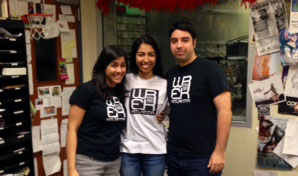
|
Salsa! Students Produce Latin American Radio Show
If you tune in to Georgia Tech’s student-run radio station, WREK, between the hours of 7 and 9 p.m. on any Sunday night, you may be privy to the sounds of anything from punk to avant-garde. On one Sunday night in particular, though, the radio waves were dominated by the sound of salsa music, thanks to a group of students taking a class in the School of Modern Languages.
After spending a semester exploring Latin American societies and cultures through their musical traditions, undergraduate students Amisha Kadiwar, Priya Verma, and Sina Medhikarimi, produced a two-hour live radio show entirely in Spanish and broadcast it in collaboration with the WREK team. As a final project for the class, Span 4813: The Latin American Music Radio Show, the students were invited to explore their preferred music style, and Caribbean music—specifically salsa—spoke to this trio of soon-to-be radio producers.
The team then began the process of brainstorming ideas for their radio show, topics to cover, and songs that might be included. Their chosen themes were community, the role of women, and recent developments in salsa. Thus, the musical journey titled “Salsa as Representative of Caribbean Diasporic Music” was born.
The radio show included a variety of music within the salsa style, featuring both classically oriented artists and newcomers, as well as an interview with salsa instructor Julian Mejia, a native of Columbia and founder of SALSAtlanta. The full playlist of the salsa special can be found on the WREK website.
Emerging from the process of producing a radio show focused on linguistically and socially meaningful content was the awareness among students of the important role of the human voice in speaking a second language. Students were encouraged to think of the human voice as both a physical and social creation. Learning a new language involves not only discovering news ways of using and articulating the mouth and facial muscles, but also the social dynamic of creating a voice and offering a perspective of the world based on a listening practice of exploring the musical dynamics of another culture.
“Part of our mission as professors of modern languages is to guide students in this process of self-discovery constituted by the desire to have a meaningful voice and intercultural mindset in a second language,” said Juan Carlos Rodriguez, who is teaching the class. “The radio show project allows students to discover and develop their own voices in Spanish. Students discover that their voices in Spanish are the result of a dialogue between personal and collective experiences involving many cultural and social issues.”
|
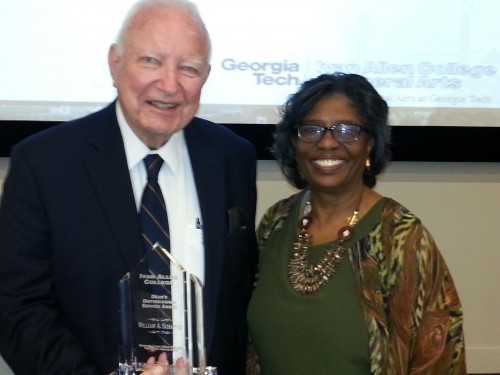
|
College Honors William Schaffer for 50 Years of Service
In 1934, a department of economics was established at Georgia Tech. Coincidentally, that same year, a future member of our economics faculty was born, William A. Schaffer.
Professor Schaffer joined Georgia Tech in 1964. Today, he is emeritus professor of Economics. According to Marilyn Somers, Director of Georgia Tech’s Living History Program, Dr. Schaffer has joined a highly exclusive club, as she knows of only two other faculty who have taught here for at least 50 years.
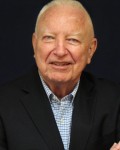 Schaffer has directed major inter-industry studies for the states of Hawaii and Georgia and the province of Nova Scotia. With special interests in regional economics, he has contributed to the literature on constructing regional inter-industry models, on economic impact analysis and input-output applications, and on the teaching and theory of regional science. He has delivered papers in France, Germany, Denmark, and Switzerland. He has authored or co-authored three books including impact studies on the Atlanta Braves, Falcons, and Chiefs, the Montreal Expos Festivals and Tourism. His most recent book,Economic Impact Models,which was published electronically, has been translated into Farsi. Schaffer has directed major inter-industry studies for the states of Hawaii and Georgia and the province of Nova Scotia. With special interests in regional economics, he has contributed to the literature on constructing regional inter-industry models, on economic impact analysis and input-output applications, and on the teaching and theory of regional science. He has delivered papers in France, Germany, Denmark, and Switzerland. He has authored or co-authored three books including impact studies on the Atlanta Braves, Falcons, and Chiefs, the Montreal Expos Festivals and Tourism. His most recent book,Economic Impact Models,which was published electronically, has been translated into Farsi.
Professor Schaffer is president and fellow of the Southern Regional Science Association and a fellow of the North American Regional Science Council of the Atlanta Economics Club. He has twice served as Chair of Economics and has been a board member of the GT Athletic Association for more than 20 years, bringing his expertise to the finance committee. He founded the Georgia Tech chapter of the international economics honor society Omicron Delta Epsilon and served as Faculty Advisor and Chapter Counselor for Tech’s chapter of Beta Theta Pi.
Dr. Schaffer has been a popular teacher who was recognized as the Faculty of the Year by the GT Student Government Association. Throughout his career at Georgia Tech, he has engendered community among colleagues and students through activities such as annual fireside parties and peach parties hosted with his wife in their home, and the economics spring picnic. A tribute to his activities is the fact that our economics group is today one of our most active groups on campus.
Dean of the Ivan Allen College of Liberal Arts, Dr. Jacqueline J. Royster, said, “On behalf of Georgia Tech and the Ivan Allen College of Liberal Arts, we congratulate Dr. Schaffer on fifty years dedicated to research, teaching and public service. We are honored that he joined our ranks and continues to serve this institution so well, even as he enters his sixth decade of loyalty and leadership. We offer our love and our appreciation for jobs well done.”
According to Dr. David Laband, Chair of the School of Economics, “Bill Schaffer is an amazing man - - someone who has touched thousands of students’ lives during his half-century at Georgia Tech and touched them in diverse and meaningful ways, both inside and outside the classroom. Among our alumni, Bill is a widely and deeply-loved and respected icon.”
The School of Economics has created a scholarship endowment in Bill’s honor. Anyone interested in finding out more about this opportunity is invited to contact Dr. Laband at 404-385-4145 or at david.laband@econ.gatech.edu.
|

|
Conversation is Key to Colatrella's Classes
It’s 9 a.m. on a Friday morning in Stein Residence Hall, and a group of about 25 bleary-eyed students are having a discussion about a topic you probably wouldn’t expect — whales.
Welcome to Carol Colatrella’s Major Authors: Melville class where the focus is on analyzing the classic Moby Dick.
“Like any good teacher, my goal in class is to get as many students participating as possible,” said Colatrella, a professor in the School of Literature, Media, and Communication and associate dean for graduate studies in the Ivan Allen College of Liberal Arts. “This is one of the reasons why I like holding this class in the lounge of the residence hall. It allows us to sit in a circle, which allows for more informal discussion.”
On this day, the students and Colatrella are engaged in a discussion about themes such as hunting whales and whether the reader is meant to feel sympathy for the whales.
“I love it when I see that our conversations have meant something to my students,” she said. “For example, a previous literature course I taught focused on families, and after the course ended, one of the students took the time to send me a photo of his family. I could see that I’d made a difference in his life — and him taking the time to do that made a difference in mine.”
Recently, The Whistle had a chance to learn more about Colatrella and her time at Georgia Tech.
What did you want to be as a child?
A math teacher, and then I thought I’d be a lawyer. Eventually, I realized that I loved literature, which led me down this path.
What made you decide to work at Tech?
I’d lived up north for much of my life, so honestly, the warm weather in the South was a key factor in my decision. Not to mention, I was eager to come and work for this school, since it was gaining respect among my colleagues in literature and science. It was a chance to work with a group of people interested in the same research topics as I was.
Tell us a bit about your research.
My books, Evolution, Sacrifice, and Narrative: Balzac, Zola, and Faulkner; Literature and Moral Reform: Melville and the Discipline of Reading; Toys and Tools in Pink: Cultural Narratives of Gender, Science, and Technology; and articles I’ve written analyze popular and scientific narrative representations of race, class, and gender.
What is an average day like for you?
This semester, I teach one course that meets three times each week. I’m also always working on projects related to my associate dean duties and my role as co-director of the Center for the Study of Women, Science, and Technology (WST), which co-sponsors the WST Learning Community for students.
Would you ever be willing to teach a massive open online courses (MOOC)?
I would. But I wonder how I’d be able to sustain the interactive discussion portion of my class teaching it online to such a large group of students.
What is your favorite spot on campus?
I love the views from the roof garden on top of Clough Commons.
What is one piece of technology you couldn’t live without?
My Blackberry. It’s like my brain.
Where is your favorite place to eat lunch?
I love trying the different salads that Highland Bakery offers.
Tell us something unique about yourself.
I almost took a job in Denmark as a humanities professor — I would have been one of 24 female humanities professors in the country. It would have been an adventure, but staying here ended up being the right decision.
Carol Colatrella is professor of literature and cultural studies in the School of Literature, Media, and Communication; associate dean for graduate studies; and co-director of the Georgia Tech Center for the Study of Women, Science, and Technology, which since 2002 has been sponsored by the Office of the Provost.
|
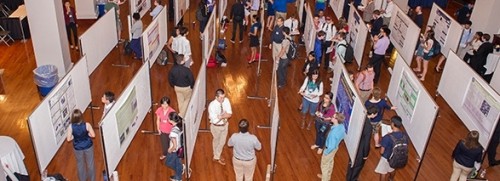
|
HTS Students to Attend ACCIAC Conference
April Martin and Elizabeth Warden, undergraduate students in the School of History, Technology, and Society, have been invited to attend the Inter-institutional Academic Collaborative of the Atlantic Coast Athletic Conference (ACCIAC) Meeting of the Minds (MOM) that will be held in early April. The conference gathers 5-10 outstanding undergraduate researchers, along with their faculty advisors, from each ACC university to present their original research.
.jpg) April Martin will present her paper "Too Big a Storm: The Complicated Atmosphere around Women's Sexual Problems," which examines the framing and medicalization of women's sexuality. Based on a content analysis of articles from the New York Times, the Washington Post, and USA Today in the past 15 years, Martin found that the media's presentation of women's sexual problems is both complex and contradictory, possibly resulting in a resistance to medicalization by the public and FDA. April Martin will present her paper "Too Big a Storm: The Complicated Atmosphere around Women's Sexual Problems," which examines the framing and medicalization of women's sexuality. Based on a content analysis of articles from the New York Times, the Washington Post, and USA Today in the past 15 years, Martin found that the media's presentation of women's sexual problems is both complex and contradictory, possibly resulting in a resistance to medicalization by the public and FDA.
 In a similar vein, Elizabeth Warden will present “The Power to Keep Them Apart: The Reinforcement of Gender Stereotypes in Prescription Direct-To-Consumer Advertising," which addresses the internalization of gender norms through a content analysis of prescription product advertisements in the highly gendered magazines Cosmopolitan and Popular Mechanics. Characteristics found to differ in accordance with the intended audience by gender were settings, color schemes, word choice, and character activities. In a similar vein, Elizabeth Warden will present “The Power to Keep Them Apart: The Reinforcement of Gender Stereotypes in Prescription Direct-To-Consumer Advertising," which addresses the internalization of gender norms through a content analysis of prescription product advertisements in the highly gendered magazines Cosmopolitan and Popular Mechanics. Characteristics found to differ in accordance with the intended audience by gender were settings, color schemes, word choice, and character activities.
Receiving an invitation to the MOM conference is an honor, and we are proud to have two students representing the Ivan Allen College of Liberal Arts.
|

|
Undergraduate Profile: Nabila Nazarali
I was not sure what to expect studying liberal arts at Georgia Tech.
Initially, I wasn’t sure what to expect from a liberal arts education at what seems to be a predominantly engineering and technology-focused university. Early on, I took the same core classes as other students—the calculus, chemistry, biology, and of course introductory economics classes. Soon after, I saw that the wealth of knowledge and research experience that my economics professors hold, as well as the rigor of my course load, made it clear that my degree program was valuable. Only recently have I started to understand the remarkable advantage of studying real world economic issues through an analytic lens, all with the problem solving-focused thinking that Tech not only encourages, but demands of its students.
Why mix a degree in economics with psychology?
I chose to pursue a dual degree in economics and psychology because I believe these two majors cross at a point where my skill set and ideal career path lie. Psychology has given me a deeper perspective on the human element of the workplace, and it has allowed me to gain insight into how people think, strategize, behave, and communicate. Economics has taught me the theory and quantitative skills necessary to be successful in a corporate environment.
A backyard full of opportunity.
My favorite part of Georgia Tech is that you really can have it all! Pursue a challenging degree at a top university, work on research projects that redefine your worldview, develop soft skills in any of over 500 GT student organizations, and meet the kinds of people that will remain in your life long after graduation day. And all smack dab in the middle of a metropolis bursting with history, performing arts, and the head offices of many Fortune 500 companies.
View the full profile here.
|
|









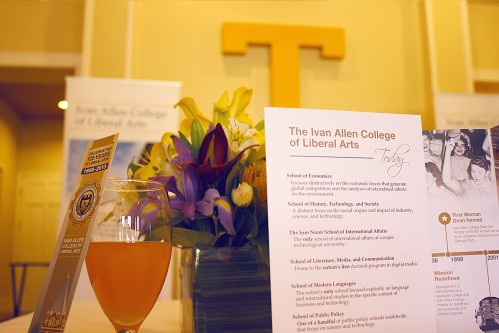
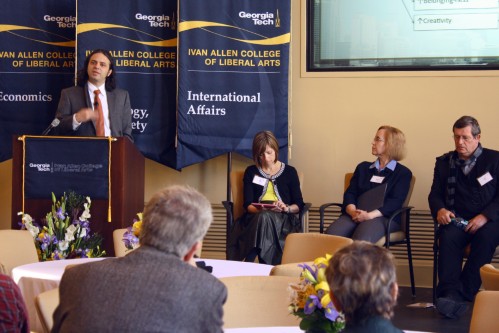
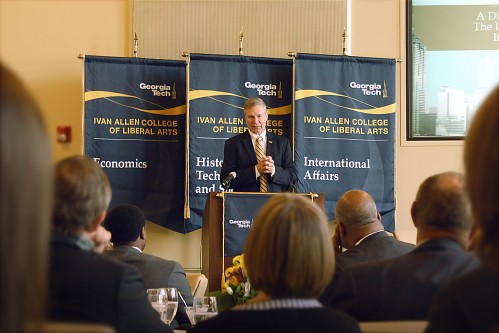
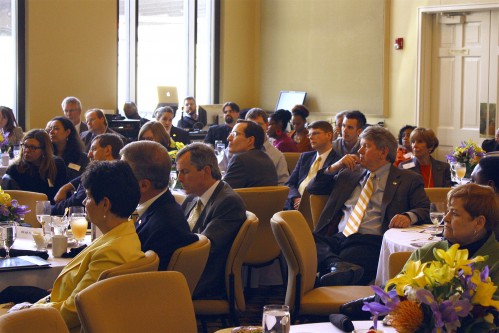
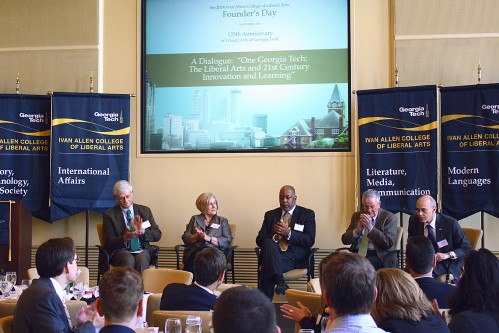
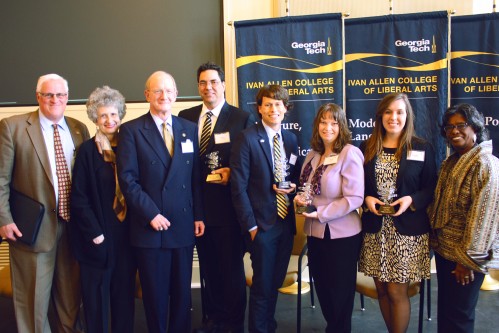

 Following on the heels of the press conference came the formal opening event for Africa Atlanta 2014, a special reception for the exhibition "Mapping Place: Africa Beyond Paper" at the Robert C. Williams Paper Museum on campus. Photos from the opening are in the slideshow below.
Following on the heels of the press conference came the formal opening event for Africa Atlanta 2014, a special reception for the exhibition "Mapping Place: Africa Beyond Paper" at the Robert C. Williams Paper Museum on campus. Photos from the opening are in the slideshow below.







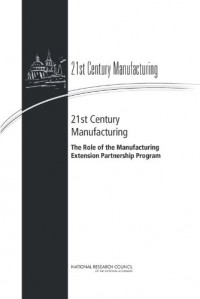
 The committee also authored recommendations aimed to improve the structure of and methods utilized by the MEP, including a stronger focus on the overall improvement of MEP centers, improved collection and analysis of performance data, and using resources to leverage maximum beneficial outcomes for the manufacturing sector rather than reaching the maximum number of manufacturers.
The committee also authored recommendations aimed to improve the structure of and methods utilized by the MEP, including a stronger focus on the overall improvement of MEP centers, improved collection and analysis of performance data, and using resources to leverage maximum beneficial outcomes for the manufacturing sector rather than reaching the maximum number of manufacturers.
 What we are trying to do is forecast innovation pathways,” said
What we are trying to do is forecast innovation pathways,” said .jpg) “You can see where the portfolio is, and how it is changing,” explained Youtie, who is also an adjunct associate professor in the Georgia Tech School of Public Policy. “In the case of nanotechnology, for example, you can see that most of the patents are in materials and physics, though over time the number of patents in the bio-nano area is growing.”
“You can see where the portfolio is, and how it is changing,” explained Youtie, who is also an adjunct associate professor in the Georgia Tech School of Public Policy. “In the case of nanotechnology, for example, you can see that most of the patents are in materials and physics, though over time the number of patents in the bio-nano area is growing.”
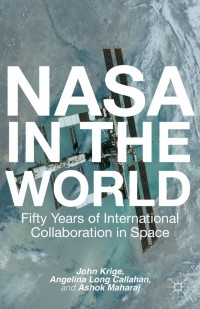
 A second book, Space Shuttle Legacy: How We Did It and What We Learned is part of the American Institute of Aeronautics and Astronautics Library of Flight Series (AIAA Press, 2013). Krige edited the collection with Jim Craig, professor emeritus in Georgia Tech aerospace engineering, and Roger Launius, an associate director of the National Air and Space Museum in Washington, DC.
A second book, Space Shuttle Legacy: How We Did It and What We Learned is part of the American Institute of Aeronautics and Astronautics Library of Flight Series (AIAA Press, 2013). Krige edited the collection with Jim Craig, professor emeritus in Georgia Tech aerospace engineering, and Roger Launius, an associate director of the National Air and Space Museum in Washington, DC.  balance between science and space station missions, reflects on the meaning of the shuttle as a social icon, and asks, “What next?”
balance between science and space station missions, reflects on the meaning of the shuttle as a social icon, and asks, “What next?”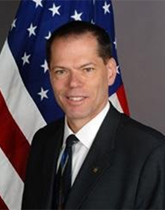


 Schaffer has directed major inter-industry studies for the states of Hawaii and Georgia and the province of Nova Scotia. With special interests in regional economics, he has contributed to the literature on constructing regional inter-industry models, on economic impact analysis and input-output applications, and on the teaching and theory of regional science. He has delivered papers in France, Germany, Denmark, and Switzerland. He has authored or co-authored three books including impact studies on the Atlanta Braves, Falcons, and Chiefs, the Montreal Expos Festivals and Tourism. His most recent book,Economic Impact Models,which was published electronically, has been translated into Farsi.
Schaffer has directed major inter-industry studies for the states of Hawaii and Georgia and the province of Nova Scotia. With special interests in regional economics, he has contributed to the literature on constructing regional inter-industry models, on economic impact analysis and input-output applications, and on the teaching and theory of regional science. He has delivered papers in France, Germany, Denmark, and Switzerland. He has authored or co-authored three books including impact studies on the Atlanta Braves, Falcons, and Chiefs, the Montreal Expos Festivals and Tourism. His most recent book,Economic Impact Models,which was published electronically, has been translated into Farsi.

.jpg) April Martin will present her paper "Too Big a Storm: The Complicated Atmosphere around Women's Sexual Problems," which examines the framing and medicalization of women's sexuality. Based on a content analysis of articles from the New York Times, the Washington Post, and USA Today in the past 15 years, Martin found that the media's presentation of women's sexual problems is both complex and contradictory, possibly resulting in a resistance to medicalization by the public and FDA.
April Martin will present her paper "Too Big a Storm: The Complicated Atmosphere around Women's Sexual Problems," which examines the framing and medicalization of women's sexuality. Based on a content analysis of articles from the New York Times, the Washington Post, and USA Today in the past 15 years, Martin found that the media's presentation of women's sexual problems is both complex and contradictory, possibly resulting in a resistance to medicalization by the public and FDA. In a similar vein, Elizabeth Warden will present “The Power to Keep Them Apart: The Reinforcement of Gender Stereotypes in Prescription Direct-To-Consumer Advertising," which addresses the internalization of gender norms through a content analysis of prescription product advertisements in the highly gendered magazines Cosmopolitan and Popular Mechanics. Characteristics found to differ in accordance with the intended audience by gender were settings, color schemes, word choice, and character activities.
In a similar vein, Elizabeth Warden will present “The Power to Keep Them Apart: The Reinforcement of Gender Stereotypes in Prescription Direct-To-Consumer Advertising," which addresses the internalization of gender norms through a content analysis of prescription product advertisements in the highly gendered magazines Cosmopolitan and Popular Mechanics. Characteristics found to differ in accordance with the intended audience by gender were settings, color schemes, word choice, and character activities.
